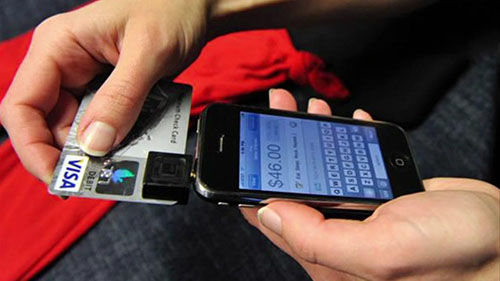How to Protect Your Cell Phone
When it comes to identity theft, you can never be too careful. Smartphones are super popular now and unscrupulous people are looking for ways to target these popular devices to steal your identity. Because they store so much personal information, they can be a treasure trove of info for someone looking to steal your identity.

This article will help you learn about some ways that you can guard your identity without having to give up your beloved smart phone. Before we get to that, though, let’s look at some of the ways you can become a victim of identity theft because that is pretty important too.
Unscrupulous people can access your phone through Wi-Fi or Bluetooth connections. They can gain information that is not protected and perhaps use it to steal your identity.
Another way you can become a victim of identity theft is if you give away your phone without erasing data. If you give your phone away, it’s important to have your information scrubbed off of it just to make sure you don’t give it to someone that has bad intentions. Even if the person you give your phone to doesn’t misuse your personal information, you don’t know what they will do with your phone when they are done with it and it could end up in another person’s hands who is not so innocent.
If you leave your phone lying around, even for a little while, you can have personal information stolen. Someone can access your phone for just a little while and download apps that can track information on your phone. These apps can track your phone conversations so they can hear if you use your credit card to make a payment over the phone. They can wipe out your account before you even realize it!
Tips for Avoiding Identity Theft from a Cell Phone
1. You can set your cell phone to lock automatically when it goes through a period of inactivity. This will make it difficult for someone to access your phone’s sensitive information without knowing your password or unlock code.
2. Turn off your GPS, Wi-fi, and Bluetooth when not in use. If you have these turned on, they can access some information on your device. If you have these turned off when you’re not using them it also helps your battery last a little longer.
3. Don’t autosave any passwords. It’s so much easier to just auto-save passwords- absolutely! There are passwords for everything and it can be so much less of a hassle to just have your logins autosaved. Guess who else it is easy for? Identity thieves. Auto saving passwords makes it possible for others to get into your social media sites, bank accounts, or any other site that you choose to auto-save.
4. Use strong passwords for your logins. You don’t want to use lazy passwords like password1234. Just trust me on this one. You want to make sure your passwords aren’t easy to guess. Most sites have guidelines for passwords to help prevent people from accessing your account by guessing your password.
5. Keep your phone safe and secure. Don’t just leave it lying around. There’s not only a danger that someone can get on your phone and fish around for your personal information, but there’s a danger that someone would download an app that could track your personal information and give access to a stranger.
6. Make sure your phone has a safe passcode or pattern to unlock it. This will help minimize the chance of having someone guess your phone’s code and gaining access to your personal information. Be careful when you are entering your passcode as well. Try to make sure no one is watching you enter it because their goal might be to steal your phone when you set it down. You might also consider wiping off your screen when you enter your passcode so a person can’t guess the combination of letters, numbers, or taps used to access your phone.
Being aware of the things that can put your information in danger can make you more aware of the ways you can protect yourself. Following these dos and don’ts can help you keep your phone safe and secure.
-24125.png)






















